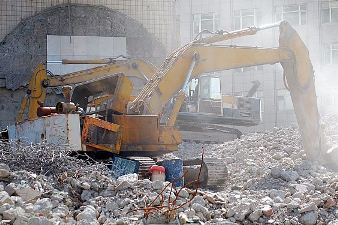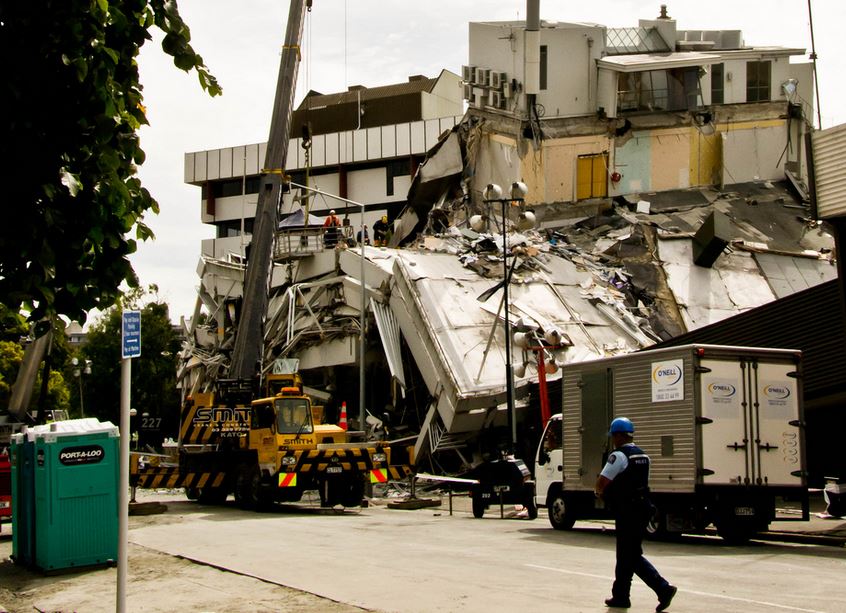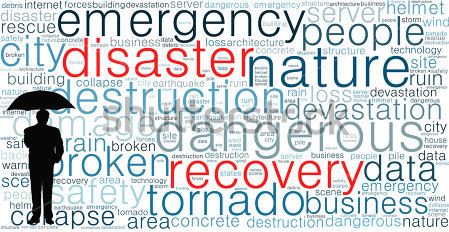 In recent years many natural disasters have occurred in NZ and other countries? What if a gas leak caused your building to be evacuated for 2 days? How would you work if disaster stuck and you couldn’t access your office? Would you need access to files and information to keep working? How long can you survive with no email – or no phone? Have you actually tested your backup system to ensure you can recover files?
In recent years many natural disasters have occurred in NZ and other countries? What if a gas leak caused your building to be evacuated for 2 days? How would you work if disaster stuck and you couldn’t access your office? Would you need access to files and information to keep working? How long can you survive with no email – or no phone? Have you actually tested your backup system to ensure you can recover files?
Can you survive a disruption? What will your customers think?
These are some situations that a business continuity plan will help you prepare for. Business Continuity Plans are sometimes referred to as Disaster Recovery Plans (DR Plan) and the two have much in common. However a DR Plan should be focused on recovering after a disaster whereas a BCP shows how to continue doing business until recovery is accomplished. Both are very important and are often combined into a single document for convenience. Not having a plan can cost you thousands, you risk your reputation and may not even be able to survive is you are a business. Losing trust with clients is a very real to businesses that is often overlooked.
Can you save your business? Are those tenants above you safe?
 Being planned allows you to minimise the interruption to your business or worst case, save your business from going under. A plan helps you to look at your exposure and have a strategy if disaster does strike.
Being planned allows you to minimise the interruption to your business or worst case, save your business from going under. A plan helps you to look at your exposure and have a strategy if disaster does strike.
We have heard about the earthquakes, floods in Australia and Tsunami in Japan. But what about any careless tenants near you? IT outages or a contractual breach? People sometimes overlook the risk of fire. What if your Internet went down for 2 days or an employee stole important information? How would you deal with these situations?
For many businesses a few hours out of action is frustrating but may not be significant. However for some businesses this can be a significant issue. The cause of the disaster may vary, however the need to be prepared and know how to respond is the same. Small businesses face the same risk as large businesses or worse if they cannot recover their data and costs.
You can’t buy insurance for your data
 Planning is about protecting your data. You can insure your server and computer but you can’t buy insurance for your data. That is your responsibility. So often we see businesses with no backup (or an inadequate backup solution) putting them at real risk. It’s so vital, for most businesses because if you lose your data you may lose your business. In addition to losing data you could risk losing money, opportunities, staff, wages, stock and perhaps getting bad publicity and legal penalties.
Planning is about protecting your data. You can insure your server and computer but you can’t buy insurance for your data. That is your responsibility. So often we see businesses with no backup (or an inadequate backup solution) putting them at real risk. It’s so vital, for most businesses because if you lose your data you may lose your business. In addition to losing data you could risk losing money, opportunities, staff, wages, stock and perhaps getting bad publicity and legal penalties.
Research suggests 80% of downtime is from problems caused by mistakes by people, not natural disasters. Your best protection against these issues is to have a Business Continuity Plan, which is understood by everyone and reviewed regularly.
So how do you write a Business Continuity Plan (BCP)?
 Creating a plan is quite simple but some experience does help immensely. Ask what you would do if you didn’t have your database, files or customer information? What impact would it have if you lost your internet connection for a few days? What would you do if a virus made your computer unusable o deleted data? What if you accidentally deleted your hard drive or it crashed, how would you get it back and how quickly would you need it restored?
Creating a plan is quite simple but some experience does help immensely. Ask what you would do if you didn’t have your database, files or customer information? What impact would it have if you lost your internet connection for a few days? What would you do if a virus made your computer unusable o deleted data? What if you accidentally deleted your hard drive or it crashed, how would you get it back and how quickly would you need it restored?
We can help build your plan, identify systems (computer based and manual) and the level of impact, priority and the steps required in each area of your plan. Actions to consider may include if staff can work from home? How? What will they need – remote access? Does your system have that capability? How will you connect with staff and clients (what if you don’t have phone or email)? Who will call who to advise them of procedures/decisions? How will you handle the press or any other enquiries?
Ask yourself if you are prepared to temporarily relocate? Do you have access to vital applications? How long could you be with no connection to your customers and what is the impact?
Some actions can really be quite simple and we can advise on this. The benefit is in having a plan so you know what has to be done in the stressful time of a disaster.
Your plan should identify how much data you can afford to lose. For example, could you use yesterdays or last week’s backup? You also need to assess for how long you can survive without access to data or information. How long can you conduct business without email, or without computers – or without access to your office?
Other tasks you can do to protect your business and data
- Develop and educate staff with your plan and test your BCP restoration procedures.
- Have your critical data offsite and geographically distant (e.g. Auckland and Wellington or Sydney).
- Work out all your costs of downtime and set a disaster plan budget.
- Select the right technology – tape backup is reliable but slow to recover.
- Enable staff to easily recover deleted data themselves.
It seems a timely reminder to check your plans. If you are interested in further information, or you would like to discuss creating your own plan please complete the form on the right side.
Final word
Test your backup or DR system now – ensure you can recover. Too often we hear people are happy with their backup and DR plan but have never tested it and when they need it, it’s not available.
